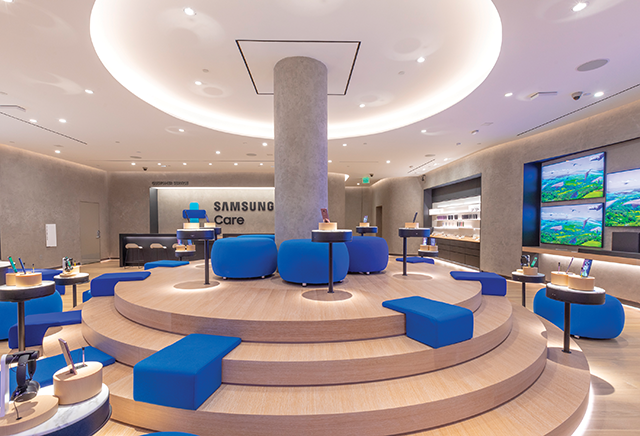Congestion caused by a surge in retail imports ahead of impending tariffs on Chinese goods continued to plague the Los Angeles and Long Beach ports, despite last month’s lower cargo volumes.
The Pacific Merchant Shipping Association, a trade group representing shippers, warned its members in a Feb. 22 report that 1 in 5 cargo containers were idled along the docks for five days or more in January.
Compounding the problem is a lack of warehouse space in the region. Industrial vacancy rates in the South Bay are at 1.5 percent, and 3.9 percent in the Inland Empire, according to Colliers International Group Inc.
As the cargo stacks grow, so too do truck lines at the terminals as the impact ripples through the local supply chain.
The Harbor Trucking Association recently logged the longest turnaround times since labor unrest that ended in 2015 nearly shut down trade along the docks.
And shippers don’t think ongoing negotiations between the world’s two largest economies will immediately solve the problem.
“The only thing that will bring us back to our normal process is when these negotiations are finalized,” said Michele Grubbs, PMSA vice president. “It’s the uncertainty that causes all the problems.”
PMSA found the average cargo load sat on the dock for 4.3 days. Terminal operators shoot for a two-day turn around to keep the docks clear for more cargo.
Stagnation is worrisome because clogged docks can slow down inbound traffic, forcing terminals to turn away new loads or pushing terminal operators to pay extra fees for cargo left on the docks for an extended period of time.
• • •
Samsung opens retail store in Glendale
Samsung is diving into the retail space Apple Inc. has dominated with a new store that opened in Glendale Feb. 20.
Replete with a gaming lounge and virtual reality space, the experiential store was one of three the South Korean company opened in the United States in an effort to boost lagging sales and promote its latest mobile phone.
The same day the stores opened, Samsung Electronics Co. Ltd. unveiled their latest, a $1,980 folding smartphone with a 7.3 inch display.
Samsung Electronics America Chief Executive Young Hoon Eom said the company is trying to build a “playground” for Samsung customers with the new stores.
The company has had popup stores throughout the United States in the past and runs Samsung 837 in New York, billed as an immersive experience where consumers can try out new products and bring in devices for repair.
Starting in March, the company will also add more retail locations or, as Samsung puts it, “embark on a new pop-up tour so even more Galaxy fans can join in on the fun.”
• • •
Relativity Space poaches from SpaceX
Rocket startup Relativity Space Inc. nabbed several SpaceX veterans as it ramps up its Los Angeles presence and eyes a 2020 launch.
The 3-year-old, Inglewood-based company whose co-founder started as an intern at Hawthorne-based Space Exploration Technologies Corp. (SpaceX) is distinguishing itself from the growing roster of rocket ship companies with smart 3-D printing. Relativity says it can make its rocket in less than two months while traditional companies easily take more than a year. The company uses a 3D printer, known as Stargate, to speed up the process. Relativity’s founders hope to use the technology to eventually establish an autonomous rocket factory on Mars.
Relativity is on a hiring spree as it seeks to expand its footprint in Los Angeles. It’s also looking for up to 200,000 square feet to house a facility to build out its rockets. The company has just one 3D printer in operation but has three more under construction.
Among the company’s new faces are former SpaceX executive Tim Buzza who joined Relativity as distinguished engineer. The company said it also brought on Josh Brost who, according to Relativity, secured $3 billion in contracts for SpaceX, and David Giger, a 13-year SpaceX veteran who led a team of designers and engineers in building two of SpaceX’s rockets − the Cargo Dragon and the Crew Drago.
In January, Relativity secured an agreement to build and operate a launch site at Cape Canaveral Air Force Station in Florida. It plans to launch its first rocket from the site in 2020.
Staff reporter Rachel Uranga can be reached at [email protected] or (323) 556-8351.

